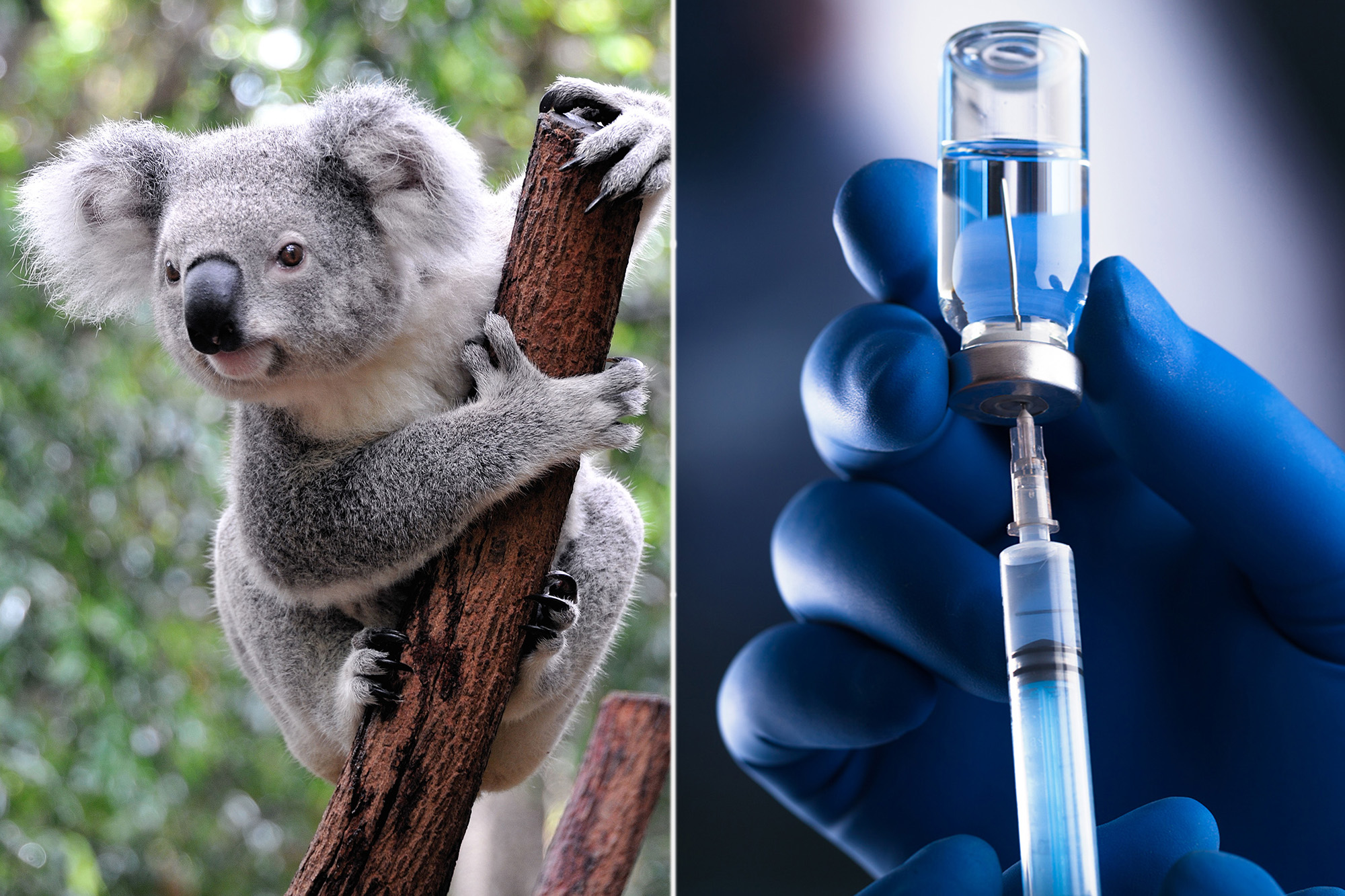World
Australia Launches Groundbreaking Vaccine to Protect Koalas

Australia has officially approved and funded a vaccine aimed at protecting koalas from chlamydia, a leading cause of mortality for this endangered species. The initiative is part of the country’s broader efforts to support koala repopulation, as their numbers have significantly dwindled over the decades due to hunting and habitat loss.
Once abundant across the continent, koalas suffered devastating population decreases in the early 20th century due to hunting for their fur. Although hunting is now prohibited, the species continues to face severe challenges, particularly from chlamydia, which is responsible for over half of all koala deaths in the wild. This sexually transmitted infection not only leads to infertility and blindness but also causes severe urinary tract infections, leaving affected koalas unable to seek food due to dehydration and weakness.
Decade-Long Research Yields Promising Results
Peter Timms, a microbiology professor at the University of the Sunshine Coast, has dedicated more than a decade to developing a single-dose vaccine specifically for koalas. He expressed concern about the precarious status of many koala colonies, which he noted are approaching “local extinction.” In regions such as Queensland and New South Wales, infection rates can reach between 50% and 70%.
Timms stated that the new vaccine has the potential to reduce the mortality rate among wild koalas by as much as 65%. He explained, “It offers three levels of protection — reducing infection, preventing progression to clinical disease, and, in some cases, reversing existing symptoms.”
The research team, including microbiologist Samuel Phillips, has spent 15 years refining the vaccine’s formula. The single-dose approach aims to minimize the need for repeated handling of the animals, which can be stressful. They plan to roll out around 500 doses in early 2024 but have indicated that additional funding will be necessary to increase production and protect the approximately 60,000 wild koalas remaining in Australia.
Funding and Broader Conservation Efforts
The Australian government has allocated roughly $495,000 from a total budget of $76 million designated for koala conservation. The majority of these funds have been directed towards habitat restoration projects and a national monitoring program that assesses the country’s koala population.
Beyond the challenges posed by chlamydia, koalas face ongoing threats from habitat destruction and deforestation, exacerbated by climate change. In a distressing incident in April, hundreds of koalas in an area already devastated by bushfires were culled by shooters using low-flying helicopters. While the culling was intended to remove sick and injured animals, it inadvertently left many healthy joeys orphaned.
The introduction of this vaccine represents a crucial step in the fight to save Australia’s iconic marsupials. With increasing support from wildlife hospitals and conservation organizations, there is hope that these efforts will bolster the koala population and ensure their survival for future generations.
-

 Lifestyle3 months ago
Lifestyle3 months agoLibraries Challenge Rising E-Book Costs Amid Growing Demand
-

 Sports3 months ago
Sports3 months agoTyreek Hill Responds to Tua Tagovailoa’s Comments on Team Dynamics
-

 Sports3 months ago
Sports3 months agoLiverpool Secures Agreement to Sign Young Striker Will Wright
-

 Lifestyle3 months ago
Lifestyle3 months agoSave Your Split Tomatoes: Expert Tips for Gardeners
-

 Lifestyle3 months ago
Lifestyle3 months agoPrincess Beatrice’s Daughter Athena Joins Siblings at London Parade
-

 World3 months ago
World3 months agoWinter Storms Lash New South Wales with Snow, Flood Risks
-

 Science3 months ago
Science3 months agoTrump Administration Moves to Repeal Key Climate Regulation
-

 Science2 months ago
Science2 months agoSan Francisco Hosts Unique Contest to Identify “Performative Males”
-

 Business3 months ago
Business3 months agoSoFi Technologies Shares Slip 2% Following Insider Stock Sale
-

 Science3 months ago
Science3 months agoNew Tool Reveals Link Between Horse Coat Condition and Parasites
-

 Sports3 months ago
Sports3 months agoElon Musk Sculpture Travels From Utah to Yosemite National Park
-

 Science3 months ago
Science3 months agoNew Study Confirms Humans Transported Stonehenge Bluestones









